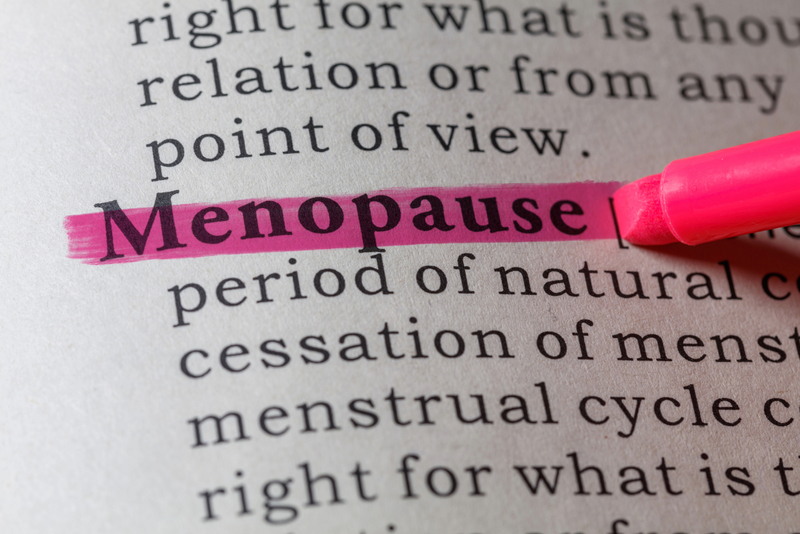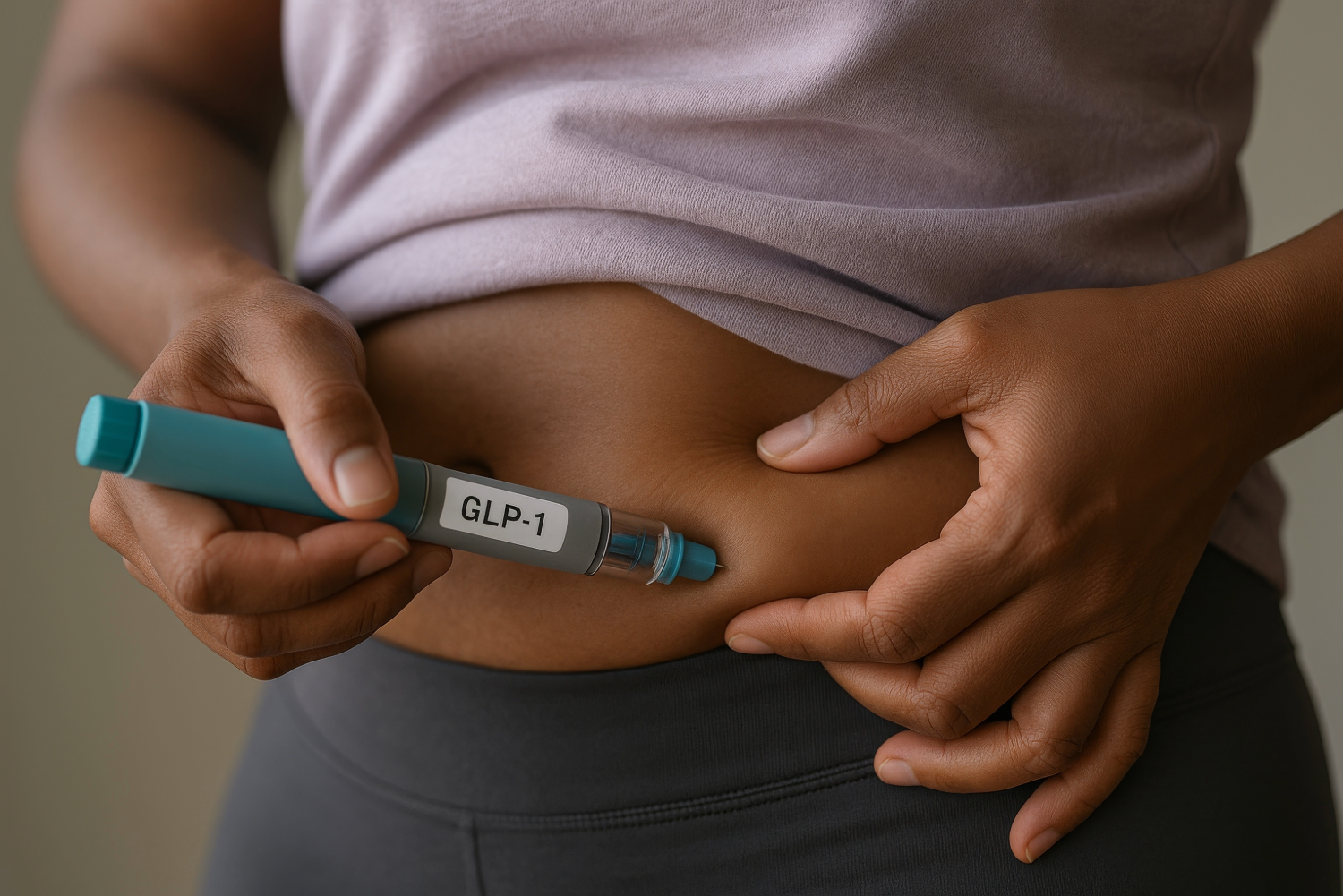News
The Details and Challenges of Menopause with Dr. Laura Boyer

Below are the notes from Dr. Laura Boyer's presentation on menopause as part of Vail Health's Flourish: A Springtime Celebration of Women's Wellness event. Dr. Boyer's discussion provides education on what menopause and perimenopause is, why you should talk with your doctor about your symptoms, and what treatment options are available.
Menopause
Menopause is when a woman has gone 1 year without a natural period. Once this happens a woman is considered to be “in menopause” or is “postmenopausal.” This happens because the ovaries stop producing hormones. The average age for menopause is 51.Perimenopause
Perimenopause is the time surrounding menopause when ovaries gradually stop working and symptoms of hormonal changes begin – this can start up to 10 years before menopause.Dr. Boyer: I often think about perimenopause as feeling like a teenager emotionally with worsened PMS and mood swings as well as having less regular, often worse periods. Many women describe it as “just not feeling like myself.” The challenge is that as this starts happening, other things start changing in the body like you start getting hot out of the blue, you start to put on weight especially in the midsection, and you have a hard time sleeping; kind of like the movie '13 Going on 30' except it’s 13 going on 45.
Other symptoms that can be part of perimenopause that tend to get worse postmenopause:
- Vaginal dryness, painful sex
- Decreased libido
- Brain fog
- Joint pain
- Changes in hair and skin
Why Women Should Talk with Their Doctor About Perimenopausal Symptoms
There are two important reasons why women should talk with their doctor about their perimenopausal symptoms:- To rule out other things that could be confused to be menopause. Things like cancer, uterine fibroids, vaginal infections, vulvar skin conditions such as a skin condition called lichen sclerosis that can cause worsened vulvar pain and itching and needs specific treatment and monitoring.
- Just because this is “natural” doesn’t mean it shouldn’t be treated. There are hormonal and nonhormonal options that can help! Every woman has unique risks and needs which is why you should also talk with your doctor about this. Insurance covers an annual wellness visit with a primary care provider (internal medicine or family medicine doctor) as well as an annual gynecologic visit with an OB/GYN. They’re considered preventative care and are most often completely covered.
Let’s Talk About HRT
Hormone Replacement Therapy (HRT) is a treatment used to relieve symptoms of menopause. It is a medication that contains female hormones (estrogen, progesterone and/or testosterone) to replace the hormones your body stops producing during menopause. HRT is most commonly used to treat menopause symptoms including hot flashes and vaginal discomfort.Dr. Boyer: Who came here because they want to find out more about HRT or has questions about it? Who has heard about or is concerned about the risk of breast cancer with hormones? Who has heard that it increases risk of heart disease and stroke? We’re going to talk about this.
Estrogen
Estrogen is the main hormone that causes most menopausal symptoms. It is an FDA approved treatment for women who are having hot flashes or night sweats (“vasomotor symptoms”) and it works very well. It’s recommended to start at a low dose and then go up as needed based on symptoms. Through HRT, estrogen can be be taken as a patch, pill or topical gel - these are all systemic.Estradiol is available in these forms and is considered bioidentical which means it’s the same form your body makes naturally. You can get this at a regular pharmacy and it’s covered by insurance. It is a treatment for women who are having hot flashes or night sweats and it works very well. It’s recommended to start at a low dose and then go up as needed based on symptoms. In women with a uterus we also need to add progesterone during this course of treatment.
Vaginal estrogen can be taken as a pill, cream, or ring. Many providers use this to treat vaginal and vulvar dryness and the symptoms that go along with that. It also helps decrease vaginal infections, urinary infections and leakage.
Dr. Boyer: Vaginal estrogen can truly be life changing. In my first year out of practice I treated a patient with vaginal estrogen who was in her 60s – a few months after she and her husband send me a dozen red roses for Valentine’s Day for helping them have sex again.
Progesterone
Progesterone is used with estrogen during perimenopause to address bleeding problems as it helps thin the uterine lining. Many women also find that progesterone helps improve their sleep and mood. The progesterone pill that is most often prescribed is called micronized progesterone and it’s bioidentical. It’s covered by insurance and you can get it at a regular pharmacy.Testosterone
Testosterone can affect energy, muscle mass, and libido among other things. There is limited research on testosterone as part of HRT for women but many women see benefits from this. Unfortunately, it is currently not FDA approved, so unlike the others forms of HRT, you cannot get testosterone at a regular pharmacy and it is not covered by insurance.There is new research emerging about testosterone and hopefully more coming. The science behind this is still in progress.
Dr. Boyer: I do prescribe testosterone in the form of a compounded cream or oral trochee that you put under your tongue – these forms are nice because you can start low and adjust as needed to avoid side effects.
Menopause HRT Treatment Challenges & Risks
There isn’t enough research on women’s health, specifically perimenopause and menopause. There are some promising changes happening right now but we have a long way to go.In 2001, a study on hormonal treatment by the NIH was stopped early because of a reported increased risk of breast cancer in the group of women in the hormone treatment group. The media went crazy with this news. Most women were pulled off of HRT at this time. In the '70s, '80s, and '90s 70% of menopausal women were on hormones. After 2001, this number dropped to about 5%. The media coverage caused fear in both doctors and women.
But what was the finding? It was shown that the incidence of breast cancer went up in the hormone therapy group (estrogen and progesterone) from 4/1,000 in 5 years to 5/1,000 in 5 years. So only one more woman out of 1,000 in 5 years. Looking at it closer there were some problems with the study:
- The estrogen and progesterone that was used in this trial were not the bioidential forms that we use today.
- They didn’t look at other risks for breast cancer in the two groups – some women in the placebo arm had actually taken estrogen prior to the study when they were younger.
- Most of the women in this study were 10+ years post-menopause when they were started on the hormones.
Systemic estrogen is contraindicated in someone who has had breast cancer, but vaginal estrogen is okay because the levels of estrogen in the blood with this treatment are actually very low. Estrogen not prescribed appropriately can feed breast cancer that is already present.
We now know that in women who start estrogen early after menopause (when cells are still healthy), there are benefits like decreases in heart disease. The ideal window for estrogen treatment is the 10 years after menopause. If your body ages too long without hormones and the estrogen is added after, people can experience worse symptoms and have a higher risk for complications.
Other benefits are seen with dementia and other neurologic diseases if treatment is started within 5 years (increased risk of dementia if started late). It is important to know that there is an insert on all estrogen prescriptions that states it can increase the risk of dementia. This can be misleading.
With oral estrogen, there is a slight increased risk of blot clot. However, this is not seen in vaginal and patch estrogen because it doesn’t process through the liver which is where clotting risk develops. With HRT the risk is lower than the risk of Deep Vein Thrombosis (DVT) with pregnancy.
Systemic estrogen can also treat osteoporosis and help with joint pain and brain fog. It is also used to counteract skin and hair changes that happen with menopause.
Other Menopause Treatment Options
We've talked all about hormones, but what are the other treatment options for menopause symptoms?Hot Flashes
Medical treatment options include: Veozah, some antidepressant medications, gabapentin, and herbal medicines like black cohosh. Nonmedical treatment options include: decreasing alcohol (specifically red wine), decreasing caffeine, bed cooling pads, handheld fans, drinking cold water as soon as one starts coming on, dressing in layers, exercise (and switching exercise from night to morning).
Vaginal Discomfort
Nonhormonal moisturizer (Revaree) which in some studies show works as well as estrogen. Vaginal laser treatment like the MonaLisa provides relief from vaginal dryness. Osphena is an oral medication that works like estrogen in the vaginal tissue but not other parts of the body. A good lubricant is also important to have on hand to use with intercourse (Uber Lube is recommended – some other brands can actually cause residual dryness) or coconut oil.
If you have additional questions related to Dr. Boyer's presentation on menopause, please reach out to VHEvents@VailHealth.org or call (970) 926-6340 to schedule a consultation with Dr. Boyer.
Dr. Laura Boyer is an OB/GYN and Robotics surgeon with Colorado Mountain Medical. Dr. Boyer has a passion for women's health and treats women of all ages. Her special interest areas include treatment of abnormal bleeding as well as pelvic and vaginal pain. Her surgical skills include robotic and laparoscopic surgery, as well as hysteroscopy and endometrial ablation. Learn more about Dr. Boyer on CMMHealth.org.
More News
-
New!
More

The Heart of It All: How Cardiovascular Health Shapes Longevity
Most of us know a healthy heart will increase our chances for a long and vital life, but how many of us truly understand how to live for a healthy heart? According to the American Heart Association, heart disease remains the number one cause of death, for both men and women, in the United States.
-
New!
More

GLP-1s and Your Health Journey: What You Need to Know
Interest in GLP-1 agonist medications, once used almost exclusively for diabetes, is soaring. Now widely referred to as weight loss injections, drugs like semaglutide (Ozempic, Wegovy) and tirzepatide (Mounjaro, Zepbound) are ubiquitous in celebrity chatter, social media and everyday patient conversations. But as demand grows, it’s increasingly important to separate hype from reality. Who qualifies for these drugs under FDA guidelines? When are they helpful? And when might carefully supported lifestyle changes offer a safer or more sustainable path?
-
New!
More

Back on the Slopes: How to Recover Physically and Mentally After a Ski or Snowboard Injury
Living in a ski town, injury is inevitable. Recovery isn’t just about regaining strength, it’s about building trust in your body. The best path back to skiing blends physical training with mental conditioning, patience with persistence. With the expert teams at Vail Health - from Howard Head Sports Medicine to Vail Health Behavioral Health - recovery is more than healing; it’s coming back stronger, smarter and more confident than before.





